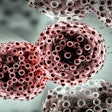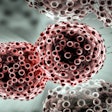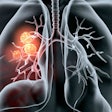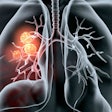
ChromaCode has begun an early-access commercial launch of a non-small cell lung cancer (NSCLC) assay that tests for variants in nine genes.
The test is designed to address diagnostic problems that prevent patients from undergoing timely cancer biomarker testing and receiving targeted therapies. A study of Medicare claims and laboratory data from 500,000 NSCLC patients found that half of the subjects were “lost to precision oncology because of factors associated with getting biomarker test results.” ChromaCode wants to tackle those factors.
California-based ChromaCode has identified cost, lack of local testing facilities, slow turnaround time for results, and insufficient or poor-quality tissue samples as barriers to access to precision medicine and designed its test to provide faster, accurate results for actionable biomarkers.
ChromaCode’s test is based on its high-definition polymerase chain reaction (HDPCR) technology. In a recent preprint paper, ChromaCode said the HDPCR NSCLC panel uses digital PCR and features two wells to detect DNA targets and one well to detect RNA fusions.
The authors of the preprint concluded that “the results demonstrate how the HDPCR NSCLC Panel can test for actionable variants with low nucleic acid input using a simple PCR-based workflow.” RNA fusion targets were the primary source of false negatives, accounting for five of the nine in the study, but the researchers attributed that to the detection of novel fusions outside the scope of the HDPCR panel.
ChromaCode has now begun an early-access launch of the test. In a statement, ChromaCode CEO Mark McDonough called the launch “a major milestone achievement” for the company, adding that the goal is to provide physicians and laboratories with “high quality, fast, lower-cost solutions.”



















